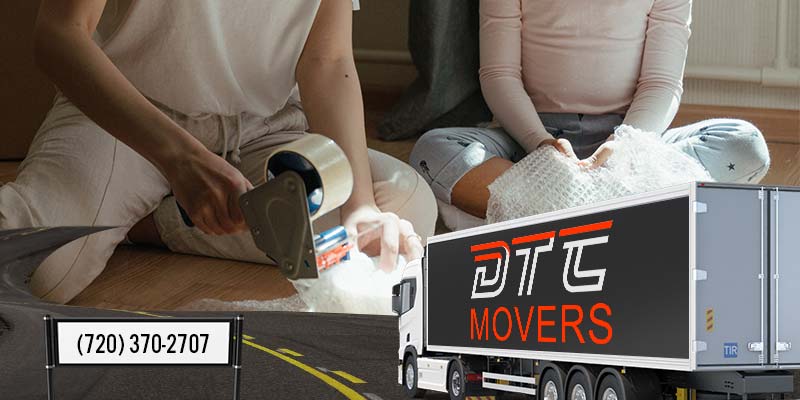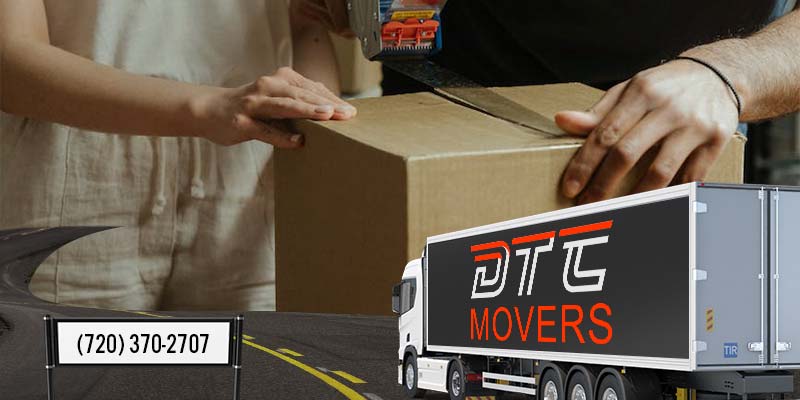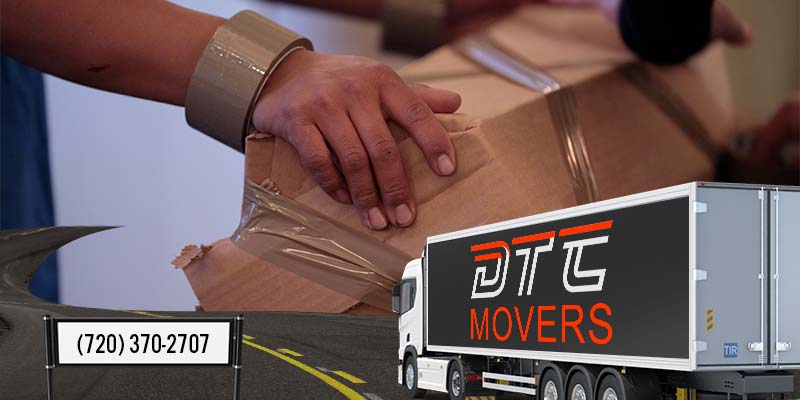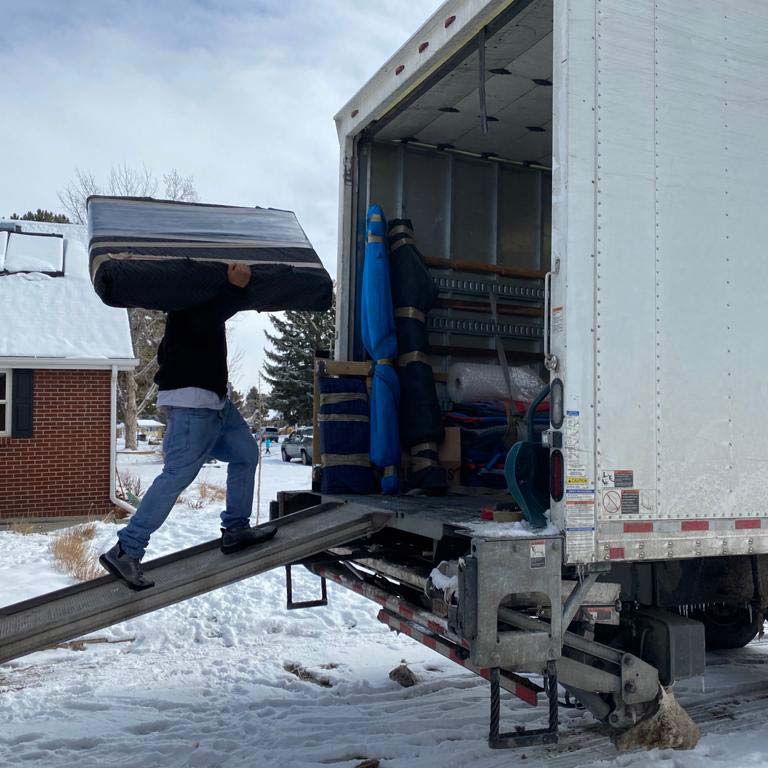The moving process can be overwhelming and exhausting. When you add kids to the mix, an already time-consuming chore can become far more complicated. Kids are naturally apprehensive of change, the idea of making new friends, leaving their school, packing up all their belongings and memories of their current house, and putting them into cardboard boxes.
There are a massive number of things you can do as a concerned parent to lessen your anxiety level and turn the experience of moving cross country or across town with your kids into a fun experience you will always remember!
Plan your route
If you are planning a move across the country and are worried that your kids’ trepidation and hesitancy to move will put a damper on your long-distance journey, planning your route with your kid’s needs and fun activities in mind can really go a long way to making the cross-country journey feel more like a fun road trip!
While packing boxes and deciding what to toss, donate, or keep, plan a route to your new abode with the kids in mind. Purchase a few games for your kids to play in the car, pack some healthy – and a few not-so-healthy- snacks, and ask the kids to choose a few landmarks, unusual locations, and enjoyable spots to stop along the way.

Put together a travel bag the day before the big move because, with kids, the toys and snacks they saved a few days ago might not be what they want now. Don’t forget to plan plenty of activities for your teenagers, although chances are kids this age will spend most of their time texting friends!
For example, plan a side trip to an amusement park, nice parks, or a zoo along the way. If you are traveling cross country, try to limit the time in your car.
Consider stopping and letting the kids explore a park or simply stretch their legs every two to three hours. This will help give your kids something to look forward to, which will make the move cross country far less stressful.
Provide Age-Appropriate Explanations for the Move Across the Country
The best-case scenario is that your kids will be over the moon to move across the country. Unfortunately, the reality of this situation is that, in most cases, your kids will be hesitant, nervous, and might even refuse to move at all.
For younger children, keep the explanation for the relocation as simple as possible and focus on the positive instead.
Older kids and teenagers will be tricky; chances are, they will often remind you that they were not the ones who decided to move. Listen to their concerns and make compromises to ensure that everyone is happy.

Prepare Children for Moving
Moving cross country is a scary notion for adults, so imagine how your kids must be feeling. Preparing your child for the relocation is critical, and as a parent, there are several amazing things you can do to make this transition less scary and more exciting.
Start the conversation when your child is focused and ready to listen. Sit your child down and calmly explain that you are packing up their toys and moving to a new house and city. Younger children are often confused by the concept of moving and believe that moving means they will leave their favorite stuffed animals and other precious belongings behind.
Talk to your younger children and explain that all of their clothing, toys, and furniture are coming with you and that you are moving all of these treasured belongings to a new house.
If you are moving locally, touring your child’s new school and letting them tour their new neighborhood is often enough to get them excited about this new adventure.
Older kids, particularly teenagers, will often have the most challenging time moving. Be patient, and remember that your older kids and teens have their own life, friends, and their own plans for the future. As moving day approaches, allow your teenager to spend extra time with their friends.
Planning a going away party for your teenager and their friends and family is a great way for your children to have closure and prepare themselves for moving cross country.

Tour Your New Home
For many children, it is the unknown of living in a new home that can be the scariest aspect of a long-distance move. Younger children might not even understand what moving cross country means. Hop on the computer and show your kids the location of their new hometown and their new home.
If possible, visit your new property before you move in. Let your kids explore, pick their own rooms, and even start decorating the space. For example, give your kids complete creative control and let them decide how to decorate their brand-new bedroom. Help your kids paint their room a new color, add a few other decorative touches, and even leave some of their most precious belongings in the new place.
Allowing your children to familiarize themselves with their new bedroom and home might encourage them to pack!
You Can Start Preparing as Early as Eight Weeks Before the Event
As a rule, it is best to start prepping for your cross-country or local relocation at least two months in advance, especially if you have children. This will cut down on your stress and, in turn, make the experience more enjoyable for the entire family. A simple idea is to pack a few boxes every day instead of trying to throw together all your clothing, toys, and home goods in a matter of days.
Take time out during the process to spend time as a family, or allow your older children plenty of opportunities to connect with their friends throughout the moving process.

Declutter their toys and clothes
Unfortunately, one of the biggest challenges you will face during the moving process is to convince your younger children to part with their toys and your older kids and teens to donate or sell some of their clothing. These are often precious commodities for children, but the reality of moving cross country is that sometimes, you simply don’t have the space in your new place to accommodate everything.
One easy moving trick is to create three piles: A must-have pile, a pile to donate or sell, and a pile to throw away. With younger children, it is often easier to eliminate some older toys and belongings that are broken, or your child has outgrown them or simply has not played with them in a while during school hours when your child is not home.
This might sound devious, but chances are, your child won’t even realize most of these items have gone missing!
For your older kids and teenagers, appeal to their sense of philanthropy and encourage them to donate some gently used clothing and other personal items to charity. Your budding entrepreneur can sell their clothing, shoes, video games, and home goods, as well.
Allowing your teens to sell their stuff and pocket the money will definitely soften the blow of long-distance moving!
What to consider when moving with children? Start by researching schools
You and your family are ready to start an adventure in new surroundings but have not narrowed down your options. Before committing to a new city, or even a new country, research the school districts. There are several excellent websites, including GreatSchools and Niche, that provide thorough reports about the school districts in a particular city or county.
Look for reviews provided by other parents, or if you know a family in the area, ask them about the best school districts in the area around your new home.
Finally, feel free to tour the schools in the district with your kids. The tour will not only allow you to check out the school for yourself, but it will also help ease your child’s anxiety about being the new kid at an unfamiliar school.

Encourage Your Kids to Get Involved
Often, the unfamiliarity with new surroundings and the struggle to feel at home in a new house or a new community is the most significant source of stress for children. Encourage your kids to not only get involved in the actual cross-country move but also help them become more involved in their new community.
For example, suppose your kids have always loved football or basketball or were the star of their high school musical. In that case, one simple idea is to encourage your child to enjoy their favorite extracurricular activities at their new school.
Find ways that your entire family can become involved in your new community. Volunteer at your local community center, become involved in the new school district’s PTA, or secure a family membership at the local YMCA!
Prepare For Emergencies
Accidents happen, especially when you involve your younger children in the packing and moving process. Preparing for these accidents and eventualities is a great way to keep the process moving and to help prevent a tantrum or meltdown if your two-year-old accidentally cut themselves on a cardboard box.
Prepare a first aid kit, complete with antibiotic cream and brightly colored band-aids, and a small treat or toy to make your little one feel better. This simple kit can prevent a disaster that can slow down the packing process.

Be Flexible
As a parent, you know that going with the flow and remaining flexible are critical skills you need to master. This is true of packing and moving cross country. You will be confronted with a range of emotions; one day, your kids might be excited, and the next, your child will be anxious and uncooperative.
One of the most useful long-distance moving tips for parents is to simply be there for their children and allow them to face the challenges of moving as a family. For example, if your teenager wants to enjoy the afternoon with their besties instead of packing their room, allow them the freedom to face the reality of this massive change on their own terms.
How to Pack with Kids?
Unfortunately, packing is the most difficult, time-consuming, and potentially exhausting aspect of moving. When you are packing with kids, the already challenging process can become downright impossible. Luckily, there are several simple packing tips that can help streamline the process and even make it enjoyable.
Here are a few:
Sort!
As your sort through your children’s toys, clothing, decorative items, and other personal belongings take a trip down memory lane. Set time aside to laugh and talk with your kids about special memories attached to these items.
For example, is your child attached to the stuffed animals purchased at Disney World on your last vacation? Take the time to reminisce about all the amazing times you spent as a family on vacation or in your current home before placing these treasured items in boxes.
Make it a competition
Kids love a good competition, especially when there is a coveted prize involved at the end. Turn the tedious, mundane chore of packing into a creative game or competition. For example, grab some packing tape and boxes and see which one of your kids can assemble the most boxes in five minutes.
Place several boxes at the end of one room and stuffed animals and toys at the other. Challenge your little one to a contest to see who can successfully toss the most items into the box! You will accomplish some chores, and your child will welcome the distraction from the stress of the big day.

Offer incentives
You can never really go wrong with some good old-fashioned bribery, especially if you have teenagers or older children. Make a deal with your teenager that you will give them money if they sort and pack up all of their clothing in a single afternoon. Younger kids will be eager to help in exchange for a trip to the movie theater or your local candy store.
Save your child’s bedroom for the last
Be prepared to pack your entire home to take days or even weeks. Start the process by packing up your guest bathroom, garage, attic, basement, and other areas where items are stored and not necessary for your everyday life.
One of the best tips for moving is to pack up your home and always save your child’s bedroom for last. This will allow your child to enjoy the normalcy of their current bedroom for as long as possible.
Include packing services
Packing boxes is a chore and instead of spending week after week carefully wrapping and packing up your entire household, inquire about packing services. Many moving companies offer packing services as a part of your overall moving package.
Packing services will save time, which can spend time enjoying farewell dinners with friends and family or taking a final trip to your favorite park.

Hiring the Right Moving Company
Whether you are happily single and child-free or have a house full of rambunctious little ones, finding the right moving company that understands your unique concerns and needs is a critical step in the relocation process.
Look for kid-friendly movers
Many moving companies are very kid-friendly and are proud of it! Look for a company that understands the challenges and obstacles that naturally come with moving across the country with kids and teenagers.
Obtain a free quote
When you are stressed, your kids will be stressed. This can complicate moving cross country even more. The best way to alleviate the tension of working with a moving company is to obtain at least three free quotes for your upcoming move.
The quote should include an estimated cost of the relocation, depending upon the company’s price structure. Typically, if you are planning a local move, which is any move within 50 to 100 miles from your current location, the moving company will charge an hourly rate.
Companies that specialize in cross-country or long-distance moves traditionally charge by the distance, the size of the crew and the number of moving trucks necessary to relocate all your stuff, and the weight or cubic feet of your belongings.

Inquire About the Services Offered
Most quality moving companies will provide a variety of services in addition to packing up and relocating your belongings. For example, packing services is an excellent idea if you have small kids because they can definitely cut down on your stress level and, in turn, make the process more enjoyable for your kids.
Inquire about self-storage options if the relocation to your new place will be delayed.
In the end, look for a reputable moving company that will offer you a good deal and all the moving services you will require to make the relocation as easy as possible.
The Big Day Has Arrived!
The day you have been anxiously waiting for has finally arrived, and the moving truck is in your driveway! This can often be the most stressful moment for your kids, so be prepared to support them in any way possible.
For small children between the age of two to five, the best option is to entertain your kids so the moving crew can do their job!
When it comes to older kids and teenagers, be prepared for your life to become temporarily difficult while your school-age children process their new life in a new city. Don’t forget that you were young once, too and that your relationships with friends were significant. Allow your teens as long as they need to say goodbye before jumping in your car and starting your new adventure in a new home.
The First Night at Your New House
After months of packing, planning, and a quick road trip across the country, you have finally arrived at your new home! Instead of rushing to unpack boxes, let your kids decide what will happen during that first crucial night. For example, enjoy that first day decorating your child’s new bedroom in your new home.
Hop in the family car and start your new life in an unfamiliar city by exploring all the great stuff the city has to offer. Spend the afternoon letting your kids make new friends at a local mall, visit an amusement park or museum, or stroll through a park and let your younger kids play.
Whatever you do, make this first day less about unpacking stuff and more about finding reasons to be excited about exploring your new home.
You thought it was time-consuming to pack?
Unpacking can be a laborious, time-consuming process, so once again, do not start until your kids get a good night’s sleep in their new bedroom. It took you days to pack, so do not try to unpack in a matter of days. Take your time and let your kids decide their own unpacking schedule.
Try to unpack the common rooms, such as the kitchen, living room, and bathrooms, while your kids are at school. This will ensure that the time with your kids is about family and not unpacking.

Maintain Both You and Your Child’s Routine
Your child will be sleeping in a new bed, eating in a new kitchen, and making a whole new set of friends. Kids thrive on routine, so the best tips for moving with kids is to ensure that your little ones and teenagers maintain a sense of normalcy.
For example, if your younger kid’s bedtime at the old property was 8 pm, their bedtime now should be 8 pm. Taco Tuesday should continue to happen, and you should take your weekly car ride to the park on Sunday, just like you did in the past.
A Couple of Final Tips for Moving
Pack your kid’s toys strategically
Does your kid have several favorite dolls or pet dinosaurs they will start looking for immediately at the new home? Pack those toys separately and make sure the box is at the front of the moving truck for quick and easy access.
Consider flying instead of driving
If you have ever driven across the entire country with your kids, you know how exhausting the process can be. Save yourself a lot of meltdowns, the constant repeating of “are we there yet” and plenty of headaches by flying instead of driving.
For an extra layer of entertainment, plan a layover in a kid-friendly destination. When in doubt, you can never really go wrong with Disneyworld!
Ask for help
Relocating across the country is a massive undertaking, and you cannot do it all on your own. Contact your neighbors, coworkers, and family members and ask them for some help. Sure, you will need help packing up boxes and taking loads to the local charity shop, but there are several other ways your loved ones can help.
Ask your sister to make a meal for the family or recruit your best friend to take your kids to a local park while you get a quote from a moving company. This is not only an excellent way for you to get some much-needed help, asking for assistance is a great excuse to enjoy some final quality time with the people you treasure the most.
Want Another Great Idea? Don’t Forget to Care for Yourself
While you pack boxes and prepare your kids for the upcoming move, don’t forget to set aside a little time for self-care. Take a bubble bath, visit a favorite coffee shop with your friend or family member, or even enjoy a long afternoon walk.
If you are stressed, your kids will recognize this and will become even more anxious. A calm parent means that your kids will remain calm, as well.

 Ready to Plan Your Move?
Ready to Plan Your Move?
Your moving day is approaching, and you are ready to plant some roots in a new community and home with your kids and family. For many parents, the most stressful aspect of moving is helping their children through the process.
In the end, the simplest thing you can do for your kids is to listen to their concerns, allow them to move on their own terms, and if all else fails, give your kids a few bucks and let them enjoy more time with their best friends!

